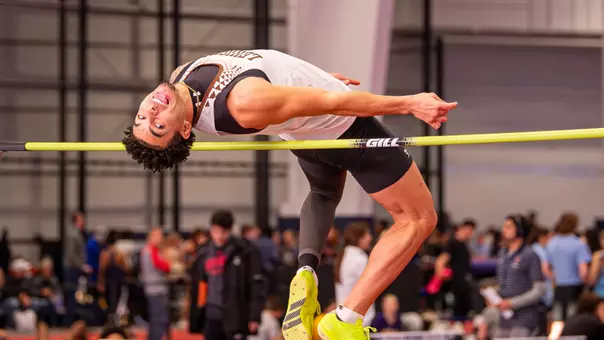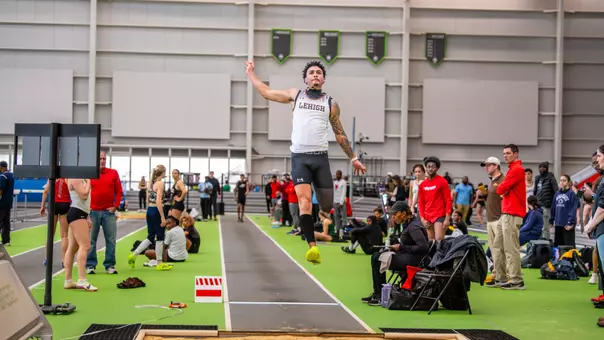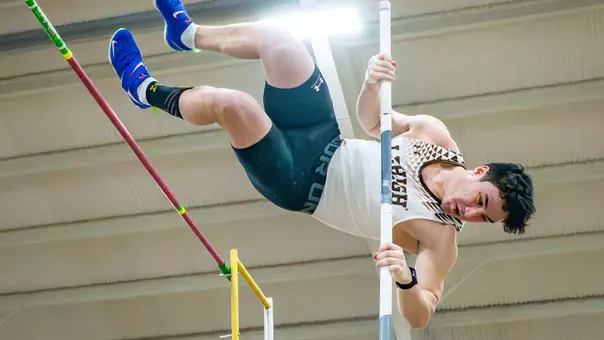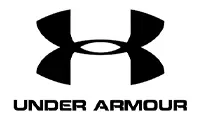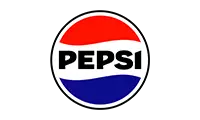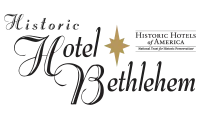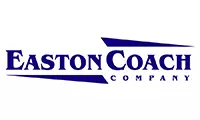Lehigh University Athletics
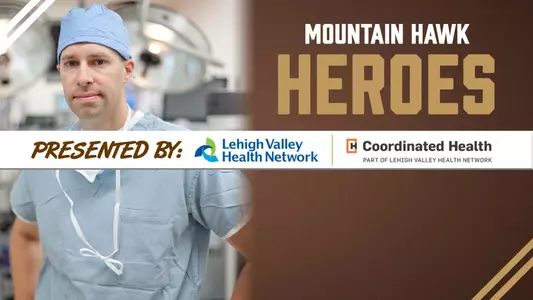
Mountain Hawk Heroes: Track and Field Alum Matt Christman
9/23/2020 12:22:00 PM | Men's Track and Field, Support, Features, Flight 45, Intellectual Development
Every Wednesday, Lehigh Athletics, Lehigh Valley Health Network and Coordinated Health is proud to recognize a Mountain Hawk Hero - someone associated with Lehigh Athletics who is making a difference in the medical field. We continue today with track and field alum Matt Christman '98.
Previous Mountain Hawk Heroes
September 16: Steph Fratoni (Field Hockey Alum)
September 9: Mike Price (Swimming and Diving Alum)
September 2: Yasmin Deliz (Track and Field Alum)
August 26: Evan Guerrero (Men's Lacrosse Alum)
August 19: Ross Biggs (Baseball Alum)
August 12: Cynthia Izuno Macri (Soccer Alum)
August 5: Susan Westman (Rowing Student-Athlete)
July 29: Megan Hetzel (Track and Field/Cross Country Alum)
July 22: Lexi Martins (Women's Basketball Alum)
July 15: Nii Daako-Darko (Track and Field/Cross Country Alum)
July 8: Ali Linsk Butash (Softball Alum)
July 1: Kimberly Scotto-Wetzel & Jonathan Wetzel (Track and Field/Cross Country Alums)
June 24: Robert Bonow (Men's Basketball Alum)
June 17: Morgan Decker (Softball Alum)
June 10: Jim Guzzo (Former Quarterback)
June 3: Amina Affini (Women's Basketball Alum)
May 27: Natalie Krane (Women's Soccer Alum)
May 20: Tricia Klein (Women's Golf Assistant Coach)
By: Justin Lafleur, Lehigh Sports Communications
Matt Christman '98 needed to perfect techniques as a hurdler on the Lehigh men's track and field team.
Flash forward more than two decades and Christman has mastered another type of technique, surgery, and is making a difference in the lives of countless individuals as a medical professional.
"There is a lot of technique in hurdling and a lot of technique in surgery," said Christman, who is a practicing urologist. "If you want to get better at hurdling, you need to practice hard. You have to get to bed early, eat well and take care of your body in the weight room and on the track… doing everything that's required to make yourself stronger.
"However, if you don't pause to think about what you need to do better in the next race to continue improving, you likely won't make much progress," he continued. "All those techniques don't just happen with increased endurance or strength.
"You need to have the insight to figure out how to improve. And that's what coaches help provide. That's what coaches Matt and Deb Utesch provided to me."
Today, Christman is not only a practicing Navy doctor, but also a "coach" himself.
"After my intern year, I deployed to Iraq as a general medical officer and my most recent deployment was as a urologist abroad the hospital shift USNS Mercy," he said. "My day-to-day practice is urology. I see both adults and children, but the primary focus of my practice is on kids with urology problems."
Christman is also Naval Medical Center San Diego's (NMCSD) residency program director.
"[The role] includes a fair amount of education," said Christman. "I oversee the 13 residents in our program who are training to become urologists."
It wasn't a straight path for Christman to this point. He took a bit of an atypical road to medicine, which included majoring in civil engineering at Lehigh.
"I really enjoyed learning about engineering, but I felt like I wanted to deal more directly with people in my profession," said Christman. "I jumped around different engineering majors and ended up in civil engineering. At that point though, I recognized I wanted to be a physician."
Christman focused on learning, growing and improving himself within his engineering major, knowing the rest would fall into place.
It certainly did.

"I completed premed requirements to apply to medical school," said Christman, who ended up at Georgetown.
"I did what's called the U.S. Navy Health Professions Scholarship Program (HPSP), so the Navy paid for medical school," he said. "When I graduated from Georgetown, I completed my internship at Naval Medical Center Portsmouth, Virginia."
Following his internship, Christman served as the medical officer of a Naval Mobile Construction Battalion (a group known as the "Seabees").
"It's a ground-based unit that deploys with Marines, and they're tasked with building expeditionary infrastructure," he said. "It actually fit with my background as a civil engineering major.
"Civil engineering involves wastewater management, and that's what urology is for the human body. I am a surgeon who happens to focus my career on a specific organ system in the pediatric population."
After two years with the Seabees, Christman returned to residency and finished training.
"I did residency training at NMCSD (in San Diego)," he said. "I then went straight from residency to fellowship at the University of Pennsylvania – the Children's Hospital of Philadelphia – for two years. I sub-specialized in pediatric urology."
After finishing in Philadelphia in 2012, Christman returned to NMCSD, where he's been ever since.
Christman only owed the Navy four years of service, one for each year of medical school, but he's made a career out of it.
"It started with the HPSP program, but I feel like I blinked and have done a career," he said.
Christman was interested in becoming a Navy doctor for multiple reasons, beyond just the Navy paying for schooling.
"My grandfather, like many in his generation, is a World War II veteran," said Matt. "My uncle is a retired Marine Corps master sergeant. I was raised with that sense of duty. I had considered going to the Naval Academy out of high school, but didn't know enough about what I wanted to do, so I was a little scared to follow through on that path because I didn't know how flexible it would be.
"I don't think the Naval Academy's curriculum is quite as flexible as Lehigh's curriculum, in terms of floating around and discovering the path you want to take."
Lehigh allowed Christman to be flexible, on and off the track, which helped set him up for long-term success.
"The time management skills were important components of what I learned… balancing the rigors of academics with competitive athletics," he said. "With time management comes discipline to do so effectively.
"Lehigh provided an opportunity to continue pursuing athletic goals and also get a really good education at the same time," Christman continued. "Lehigh helps develop well-rounded individuals."
While Lehigh made an impact on Christman, the opposite is also true.

"Matt Christman… what a person to begin a career with," said head men's track and field coach Matt Utesch. "I was a young guy and could not ask for a better team captain as a first-year head coach. I found Matt to be everything our leadership academy, Flight 45, teaches.
"The amazing thing is that we didn't even have leadership academy when he was in school. As a matter of fact, the founder of our academy, Julie Ammary, was about 12 years old. I can't tell you how happy I am that we have Flight 45 today so we can produce more graduates like Matt."
For Utesch, Christman was a sign of things to come.
"When I was new to Lehigh, Matt introduced me to the kind of people I was going to be dealing with," said Utesch. "Really remarkable people. People who major in engineering, join the Navy, become a doctor, then serve with the Navy long enough and rise to the level of captain (recently promoted, as of September 1)."
The well-rounded Christman learned a lot at Lehigh (he even completed an online healthcare systems engineering graduate degree at Lehigh in 2018). He's taken everything he's learned and in turn, given back to both the patients he treats and residents he oversees.
"I like teaching residents and medical students who are very eager to learn," said Christman. "To see their excitement as they're learning, progressing and taking steps in their own careers – and knowing you played a small part to encourage that process – is very rewarding and motivating."
Christman's own practice as a surgeon is equally rewarding and motivating.
"One of the draws for surgeons is the ability to go in the operating room and fix problems," he said. "After surgery, the problem no longer exists and the patient recovers and improves. There's a lot of satisfaction in seeing that process play out and being able to contribute to patients' health."
Continuing to provide care for patients has recently been a challenge for practically all medical professionals due to the COVID-19 pandemic.
Christman is no exception.
"Working for the Navy is different than our civilian counterparts," he said. "The population I care for is within a single-payer, universal health care system. There's no money exchanged."
Many of Christman's surgeries would be considered elective, so many have been delayed, especially in the initial months of the pandemic.
"An elective surgery doesn't need to be done today and it doesn't need to be done tomorrow," he said. "It may need to be done, but if we wait a couple weeks to even a couple months, it's probably okay in many cases (although certainly not all)."

The problem comes when patients who often need to come in, don't.
"We've also shifted to telemedicine for a significant portion of care," said Christman. "We weren't really doing any telemedicine prior to the pandemic, and now, it's probably 50 percent of the visits. It's shifting the paradigm of how we provide care."
Christman doesn't expect telemedicine to go away anytime soon, even when the pandemic is under control.
Whether he provides in-person or virtual care, Christman knows words like technique, insight and approach will continue to be important… much like they were in his time hurdling at Lehigh.
"I see insight as a very clear differentiator in the residents coming through who are able to succeed versus those who may struggle a little bit," he said. "You have to be able to self-evaluate and figure out what you need to do to reach the next stage of development. You need the ability to self-reflect and problem solve."
Often, there is guidance along the way, such as a college coach (or in Christman's case, as a "coach" for the residents he oversees).
"Coaches can point out steps for improvement, but if you yourself don't recognize it and understand that you're not doing something correctly, then you're not going to have the ability to improve," said Christman.
It's an important lesson in all aspects of life.
A lesson that Christman personifies every single day.
Previous Mountain Hawk Heroes
September 16: Steph Fratoni (Field Hockey Alum)
September 9: Mike Price (Swimming and Diving Alum)
September 2: Yasmin Deliz (Track and Field Alum)
August 26: Evan Guerrero (Men's Lacrosse Alum)
August 19: Ross Biggs (Baseball Alum)
August 12: Cynthia Izuno Macri (Soccer Alum)
August 5: Susan Westman (Rowing Student-Athlete)
July 29: Megan Hetzel (Track and Field/Cross Country Alum)
July 22: Lexi Martins (Women's Basketball Alum)
July 15: Nii Daako-Darko (Track and Field/Cross Country Alum)
July 8: Ali Linsk Butash (Softball Alum)
July 1: Kimberly Scotto-Wetzel & Jonathan Wetzel (Track and Field/Cross Country Alums)
June 24: Robert Bonow (Men's Basketball Alum)
June 17: Morgan Decker (Softball Alum)
June 10: Jim Guzzo (Former Quarterback)
June 3: Amina Affini (Women's Basketball Alum)
May 27: Natalie Krane (Women's Soccer Alum)
May 20: Tricia Klein (Women's Golf Assistant Coach)
By: Justin Lafleur, Lehigh Sports Communications
Matt Christman '98 needed to perfect techniques as a hurdler on the Lehigh men's track and field team.
Flash forward more than two decades and Christman has mastered another type of technique, surgery, and is making a difference in the lives of countless individuals as a medical professional.
"There is a lot of technique in hurdling and a lot of technique in surgery," said Christman, who is a practicing urologist. "If you want to get better at hurdling, you need to practice hard. You have to get to bed early, eat well and take care of your body in the weight room and on the track… doing everything that's required to make yourself stronger.
"However, if you don't pause to think about what you need to do better in the next race to continue improving, you likely won't make much progress," he continued. "All those techniques don't just happen with increased endurance or strength.
"You need to have the insight to figure out how to improve. And that's what coaches help provide. That's what coaches Matt and Deb Utesch provided to me."
Today, Christman is not only a practicing Navy doctor, but also a "coach" himself.
"After my intern year, I deployed to Iraq as a general medical officer and my most recent deployment was as a urologist abroad the hospital shift USNS Mercy," he said. "My day-to-day practice is urology. I see both adults and children, but the primary focus of my practice is on kids with urology problems."
Christman is also Naval Medical Center San Diego's (NMCSD) residency program director.
"[The role] includes a fair amount of education," said Christman. "I oversee the 13 residents in our program who are training to become urologists."
It wasn't a straight path for Christman to this point. He took a bit of an atypical road to medicine, which included majoring in civil engineering at Lehigh.
"I really enjoyed learning about engineering, but I felt like I wanted to deal more directly with people in my profession," said Christman. "I jumped around different engineering majors and ended up in civil engineering. At that point though, I recognized I wanted to be a physician."
Christman focused on learning, growing and improving himself within his engineering major, knowing the rest would fall into place.
It certainly did.

"I completed premed requirements to apply to medical school," said Christman, who ended up at Georgetown.
"I did what's called the U.S. Navy Health Professions Scholarship Program (HPSP), so the Navy paid for medical school," he said. "When I graduated from Georgetown, I completed my internship at Naval Medical Center Portsmouth, Virginia."
Following his internship, Christman served as the medical officer of a Naval Mobile Construction Battalion (a group known as the "Seabees").
"It's a ground-based unit that deploys with Marines, and they're tasked with building expeditionary infrastructure," he said. "It actually fit with my background as a civil engineering major.
"Civil engineering involves wastewater management, and that's what urology is for the human body. I am a surgeon who happens to focus my career on a specific organ system in the pediatric population."
After two years with the Seabees, Christman returned to residency and finished training.
"I did residency training at NMCSD (in San Diego)," he said. "I then went straight from residency to fellowship at the University of Pennsylvania – the Children's Hospital of Philadelphia – for two years. I sub-specialized in pediatric urology."
After finishing in Philadelphia in 2012, Christman returned to NMCSD, where he's been ever since.
Christman only owed the Navy four years of service, one for each year of medical school, but he's made a career out of it.
"It started with the HPSP program, but I feel like I blinked and have done a career," he said.
Christman was interested in becoming a Navy doctor for multiple reasons, beyond just the Navy paying for schooling.
"My grandfather, like many in his generation, is a World War II veteran," said Matt. "My uncle is a retired Marine Corps master sergeant. I was raised with that sense of duty. I had considered going to the Naval Academy out of high school, but didn't know enough about what I wanted to do, so I was a little scared to follow through on that path because I didn't know how flexible it would be.
"I don't think the Naval Academy's curriculum is quite as flexible as Lehigh's curriculum, in terms of floating around and discovering the path you want to take."
Lehigh allowed Christman to be flexible, on and off the track, which helped set him up for long-term success.
"The time management skills were important components of what I learned… balancing the rigors of academics with competitive athletics," he said. "With time management comes discipline to do so effectively.
"Lehigh provided an opportunity to continue pursuing athletic goals and also get a really good education at the same time," Christman continued. "Lehigh helps develop well-rounded individuals."
While Lehigh made an impact on Christman, the opposite is also true.

"Matt Christman… what a person to begin a career with," said head men's track and field coach Matt Utesch. "I was a young guy and could not ask for a better team captain as a first-year head coach. I found Matt to be everything our leadership academy, Flight 45, teaches.
"The amazing thing is that we didn't even have leadership academy when he was in school. As a matter of fact, the founder of our academy, Julie Ammary, was about 12 years old. I can't tell you how happy I am that we have Flight 45 today so we can produce more graduates like Matt."
For Utesch, Christman was a sign of things to come.
"When I was new to Lehigh, Matt introduced me to the kind of people I was going to be dealing with," said Utesch. "Really remarkable people. People who major in engineering, join the Navy, become a doctor, then serve with the Navy long enough and rise to the level of captain (recently promoted, as of September 1)."
The well-rounded Christman learned a lot at Lehigh (he even completed an online healthcare systems engineering graduate degree at Lehigh in 2018). He's taken everything he's learned and in turn, given back to both the patients he treats and residents he oversees.
"I like teaching residents and medical students who are very eager to learn," said Christman. "To see their excitement as they're learning, progressing and taking steps in their own careers – and knowing you played a small part to encourage that process – is very rewarding and motivating."
Christman's own practice as a surgeon is equally rewarding and motivating.
"One of the draws for surgeons is the ability to go in the operating room and fix problems," he said. "After surgery, the problem no longer exists and the patient recovers and improves. There's a lot of satisfaction in seeing that process play out and being able to contribute to patients' health."
Continuing to provide care for patients has recently been a challenge for practically all medical professionals due to the COVID-19 pandemic.
Christman is no exception.
"Working for the Navy is different than our civilian counterparts," he said. "The population I care for is within a single-payer, universal health care system. There's no money exchanged."
Many of Christman's surgeries would be considered elective, so many have been delayed, especially in the initial months of the pandemic.
"An elective surgery doesn't need to be done today and it doesn't need to be done tomorrow," he said. "It may need to be done, but if we wait a couple weeks to even a couple months, it's probably okay in many cases (although certainly not all)."

The problem comes when patients who often need to come in, don't.
"We've also shifted to telemedicine for a significant portion of care," said Christman. "We weren't really doing any telemedicine prior to the pandemic, and now, it's probably 50 percent of the visits. It's shifting the paradigm of how we provide care."
Christman doesn't expect telemedicine to go away anytime soon, even when the pandemic is under control.
Whether he provides in-person or virtual care, Christman knows words like technique, insight and approach will continue to be important… much like they were in his time hurdling at Lehigh.
"I see insight as a very clear differentiator in the residents coming through who are able to succeed versus those who may struggle a little bit," he said. "You have to be able to self-evaluate and figure out what you need to do to reach the next stage of development. You need the ability to self-reflect and problem solve."
Often, there is guidance along the way, such as a college coach (or in Christman's case, as a "coach" for the residents he oversees).
"Coaches can point out steps for improvement, but if you yourself don't recognize it and understand that you're not doing something correctly, then you're not going to have the ability to improve," said Christman.
It's an important lesson in all aspects of life.
A lesson that Christman personifies every single day.
Women's Lacrosse vs. La Salle
Saturday, February 28
MHT EP10 - Women's Basketball
Friday, February 27
2026 Men's Golf Season Preview
Friday, February 20
MHT EP9 - Women's Wrestling
Thursday, February 19
